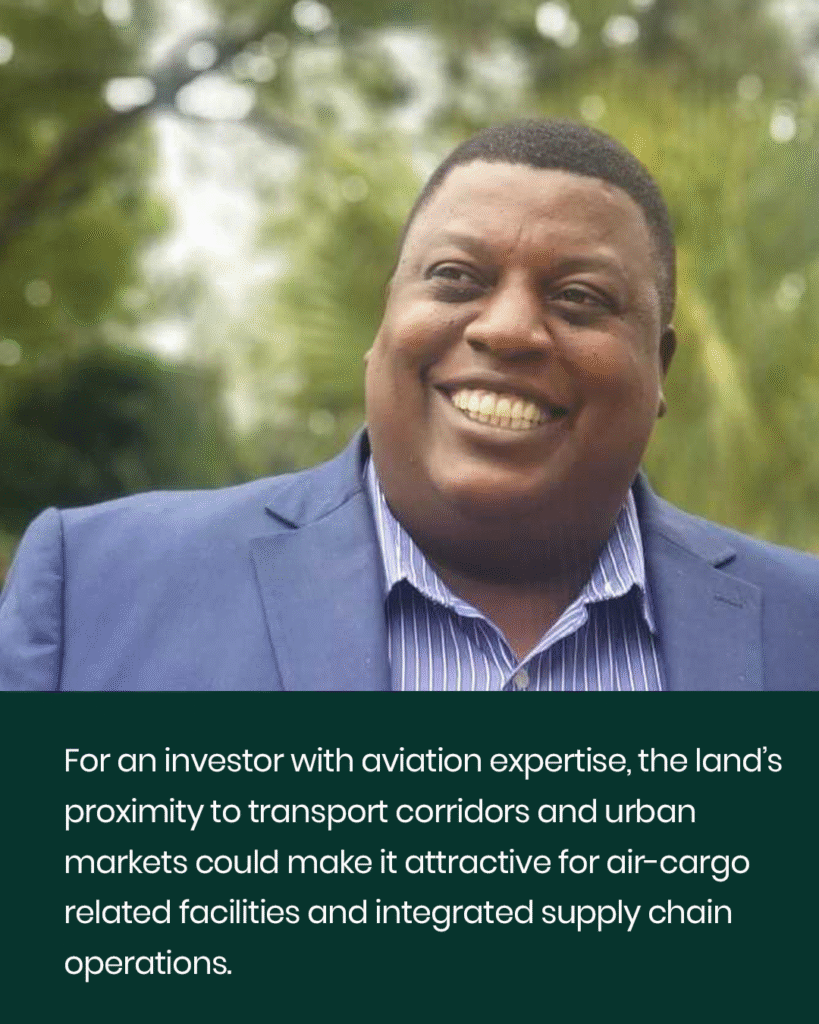Patson Moyo, the Zimbabwean aviation entrepreneur, has acquired a 418-hectare property on the outskirts of Harare in a deal valued at $30 million. The purchase represents one of the largest single private land transactions in the city this year and marks a notable moment in Moyo’s expanding portfolio beyond aviation.

Moyo built his reputation in aviation and related logistics. In recent years he has been associated with investments aimed at improving regional air connectivity and cargo capacity. The new Harare estate gives him a large, contiguous parcel of land suitable for long-term development projects that can complement his existing interests.
Local business observers see the acquisition as a strong signal of confidence in Harare’s commercial prospects. A site of 418 hectares provides scale and flexibility. It can accommodate a mix of uses including logistics hubs, light industrial parks, residential precincts and hospitality projects, subject to planning permissions and local regulations.
The timing of the purchase is worth noting. Cities across the region are preparing for increased investment in infrastructure and value chains linked to trade and manufacturing. For an investor with aviation expertise, the land’s proximity to transport corridors and urban markets could make it attractive for air-cargo related facilities and integrated supply chain operations.
Moyo’s background in aviation gives him a different risk profile from a typical land investor. He understands the operational demands of airports, cargo storage and last-mile delivery, and he can align land use decisions with logistics requirements. That operational insight tends to shorten the development learning curve and can improve the chances of a commercially viable outcome.

The transaction also raises questions about the pace and shape of urban expansion around Harare. Large land purchases by private developers change land supply dynamics and influence infrastructure priorities. City planners will need to assess how new projects fit into broader municipal strategies for housing, transport and utilities.
For the local workforce the arrival of a deep-pocketed investor often translates into jobs during construction and then steady employment when facilities begin operations. If Moyo moves to develop logistics and manufacturing space, those sectors are likely to absorb a range of skills from technical trades to logistics management.
Moyo’s acquisition underlines a trend where successful entrepreneurs diversify into real estate as a way to anchor broader business strategies. Land gives them optionality: a place to stage industrial projects, to host joint ventures or to parcel and sell once value has been added. In markets where commercial real estate is scarce, a single large holding can become a strategic asset.
At a time when Zimbabwe seeks fresh capital and job creation, high-profile investments draw attention. The practical outcome will depend on Moyo’s next steps: whether he files for planning, seeks partners, or moves quickly to break ground. Observers will watch planning applications and any public statements from his team for clues about the intended use of the site.

Patson Moyo’s purchase is firmly within the pattern of African entrepreneurs turning capital into place. The $30 million deal positions him as a private developer with scale and suggests Harare remains a market where bold projects are still possible.





